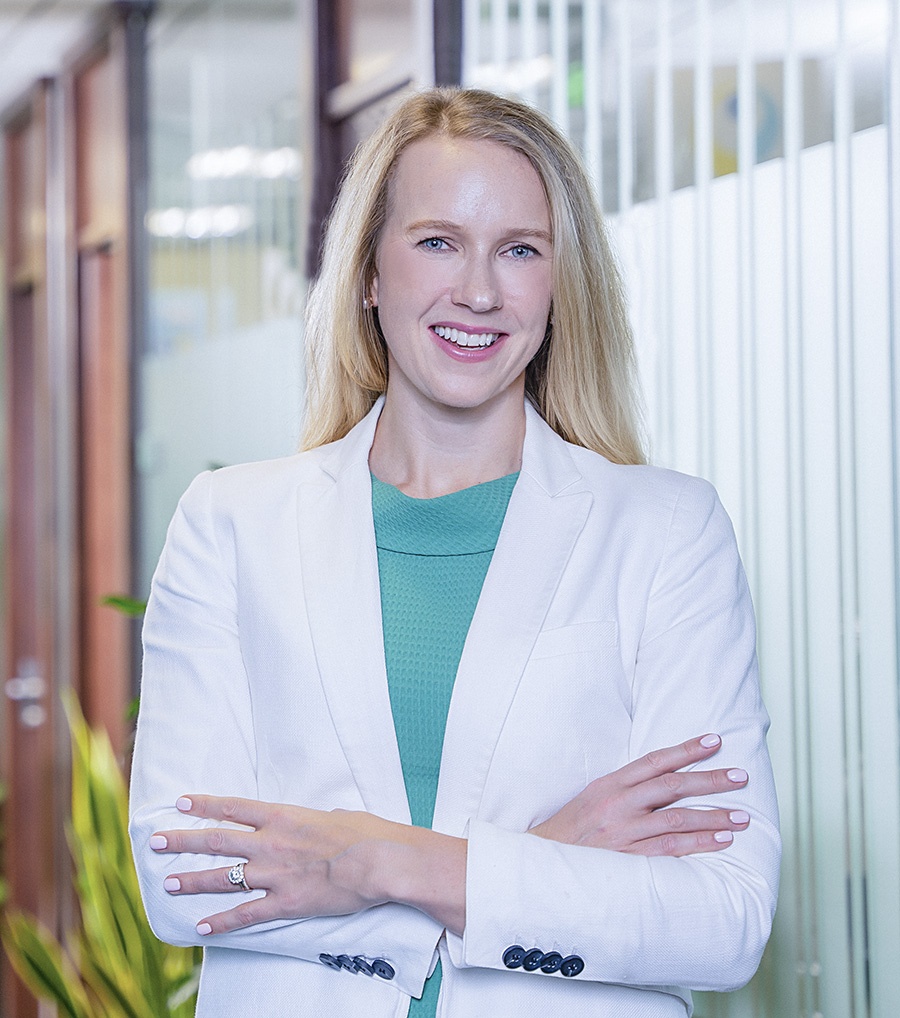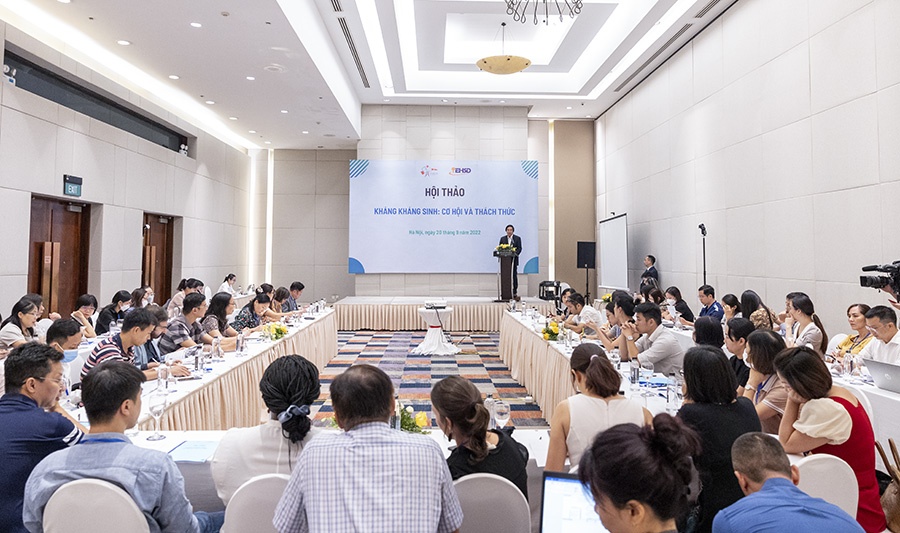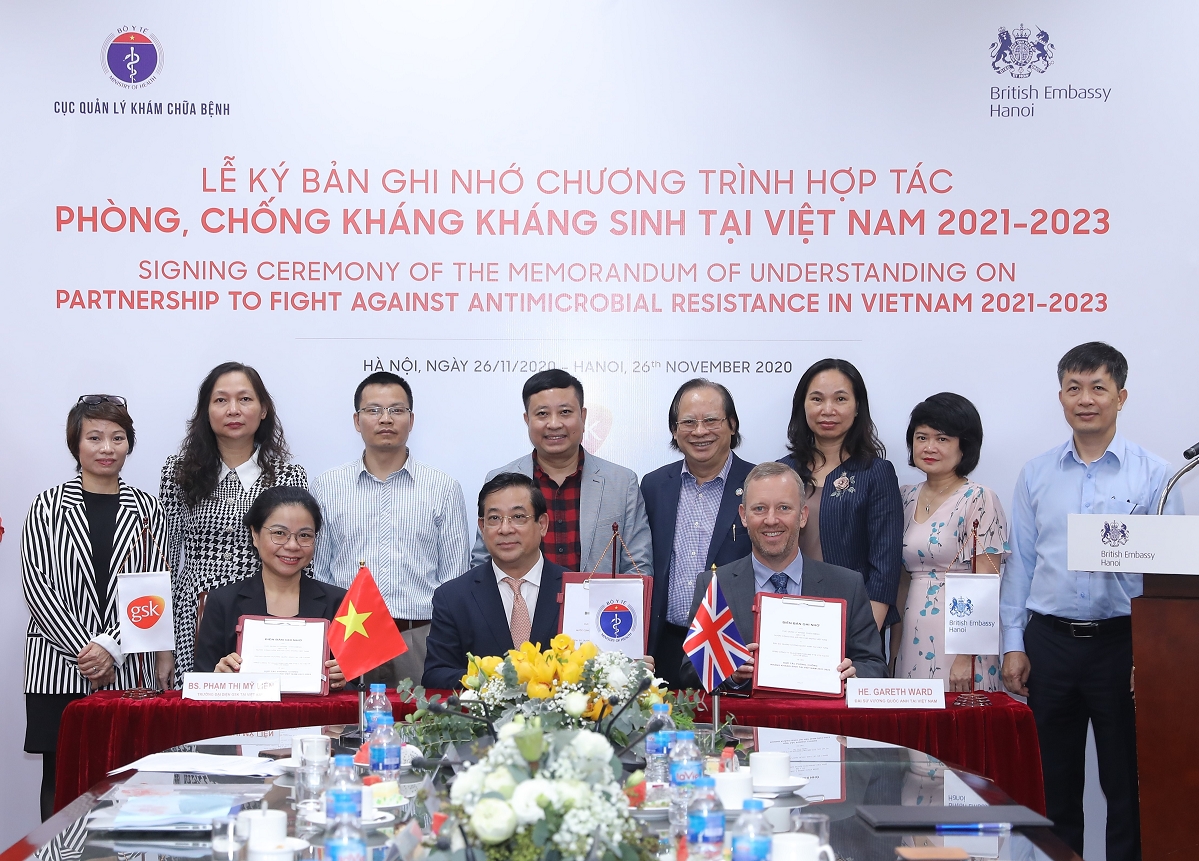Combating antimicrobial resistance in Vietnam – the only way forward is together
How has AMR impacted Vietnam, and what are its implications to the healthcare sector and society?
 |
| Jennifer Cox, managing director of MSD Vietnam |
AMR occurs when bacteria, viruses, fungi, and parasites change over time and no longer respond to medicines, making infections harder to treat and increasing the risk of disease spread, severe illness, and death. This means that infections become increasingly difficult – or in some cases, it’s impossible to treat, and today, we are finding bacteria are developing resistance at a faster rate than new antimicrobials are being developed.
AMR poses a significant threat to public health globally as it reduces the effectiveness of antibiotics, leading to multiple and extensive drug-resistant pathogens. In 2019, nearly 5 million human deaths worldwide were associated with bacterial AMR. Furthermore, AMR also has grave economic impacts leading to higher medical costs, prolonged hospital stays, and therefore loss of productivity.
If we look at Vietnam in the battle against AMR, I believe Vietnam is a major frontline, as it has one of Asia’s highest rates of AMR. The key underlying reasons are the extremely high antibiotic consumption rates in hospitals and the community and the substantial overuse of antimicrobial drugs in the animal health sector.
A national AMR strategy has been in place since 2013, and MSD has partnered with hospitals from 2012. What progress has been made over the past decade, and what challenges remain?
Vietnam was, in fact, one of the first countries in the Western Pacific Region to develop a National Action Plan back in 2013.
MSD has been working with hospitals on the antimicrobial stewardship (AMS) programme, piloted at Cho Ray Hospital since 2012. A report published in 2016 showed that, at Cho Ray hospital, the compliance rate to hospital antibiotic guidelines increased by 14.5 per cent, and antibiotic use decreased significantly, reducing the cost of antibiotics by 1.3 per cent compared to 2015. In 2020, MSD partnered with the Ministry of Health and expanded the programme to 36 hospitals. After 10 years of implementation, 46 hospitals have actively enrolled in this approach as of December 2021.
However, what has become clear over the past few years is that AMR is a complex issue that has gone beyond the healthcare sector. For example, not only are the antimicrobial agents easily absorbed by human patients, but they are also liberally used in animal agriculture in Vietnam, including chickens, pigs, and even fish, which is often adopted as a preventative measure against infection. As a result, the trend contributes to the growth of AMR.
As the AMR issue evolves, so must our strategy. That’s why I think it’s important this year that the AMS partnership between MSD, hospitals, and the Ministry of Health need to incorporate the ‘One Health’ collaborative, multisectoral, and multidisciplinary approach.
 |
| Overview of the workshop “Antibiotic Resistance: Opportunities and Challenges” |
This year, the AMR partnership between MSD and key stakeholders in Vietnam will broaden its focus with the ‘One Health’ approach. How does this compare to the previous approach, and how will it address current critical AMR challenges?
Unlike the previous approach, the ‘One Health’ approach requires a mindset shift towards finding solutions that fit the whole system involving multi-stakeholders such as healthcare professionals for both human and animal health, environmental science experts, policymakers, and local communities, rather than just each individual.
MSD, in partnership with the Institute of Environmental Health and Sustainable Development, has organised a series of scientific workshop on AMR in both human health and animal health. These workshops attracted more than 200 specialists in total who are in the field of healthcare and agriculture, practical doctors from national hospitals, researchers, and lecturers from certain institutes and universities.
We’ve received valuable recommendations from those workshops, which include how to strengthen the supervision and management of medication; raise public awareness of AMR through leveraging media and social networks.
Since AMR is a global issue, how is MSD contributing to the battle against AMR outside of Vietnam?
While MSD is a major supporter of numerous AMR projects globally and across Asia-Pacific, we recognise that AMR cannot be eliminated by good stewardship alone.
We also need ‘offensive’ weapons, such as new and effective antibiotics. That’s why we remained one of the few global pharmaceutical companies still investing deeply in novel antibiotics. In 2020, MSD and other leading biopharmaceutical companies launched the AMR Action Fund, contributing $100 million to the delivery of two to four new antibiotics to patients by 2030.
MSD is also a natural key player and partner in the ‘One Health’ approach against AMR due to our expertise in both human and animal health.
Ultimately, timely investments addressing AMR can bring long-term benefits to health and development in the region and beyond. MSD’s proud to be a leader in this fight, but it will take collective efforts and bold innovations to win the war truly. We believe the only way forward is together.
 | Partnership signed to fight against antimicrobial resistance in Vietnam in 2021-2023 The Medical Service Administration under Vietnam’s Ministry of Health, the British Embassy in Vietnam, and the Representative Office of GSK Pte., Ltd. in Vietnam on November 26 signed an MoU on the partnership to fight against antimicrobial resistance in Vietnam in 2021-2023 on the occasion of World Antibiotic Awareness Week. |
What the stars mean:
★ Poor ★ ★ Promising ★★★ Good ★★★★ Very good ★★★★★ Exceptional
Related Contents
Latest News
More News
- Digital shift reshaping Vietnam’s real estate brokerages (December 31, 2025 | 18:54)
- Allen & Gledhill recognised as Outstanding M&A Advisory Firm (December 18, 2025 | 14:19)
- Inside Lego Manufacturing Vietnam (December 18, 2025 | 11:45)
- The next leap in Cloud AI (December 11, 2025 | 18:19)
- Vietnam’s telecom industry: the next stage of growth (December 11, 2025 | 18:18)
- Five tech predictions for 2026 and beyond: new era of AI (December 11, 2025 | 18:16)
- CONINCO announces new chairman and CEO (December 10, 2025 | 11:00)
- How AWS is powering the next-gen data era (December 09, 2025 | 13:14)
- Outlook in M&A solid for Singapore (December 08, 2025 | 10:31)
- Vietnamese firms are resetting their strategy for global markets (December 05, 2025 | 17:04)

 Tag:
Tag:

















 Mobile Version
Mobile Version